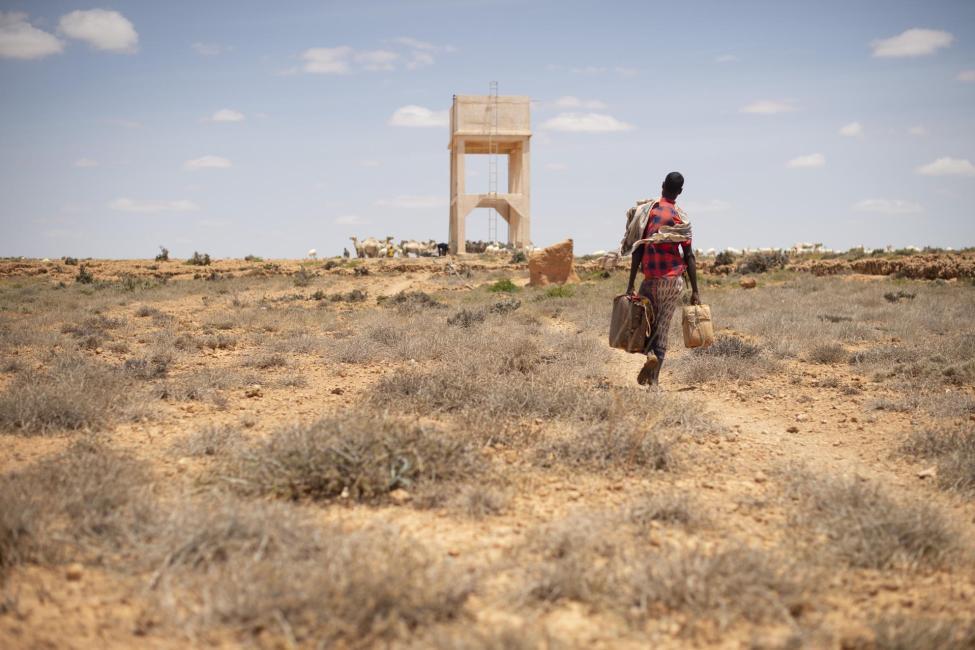More than three million people have been displaced since January last year.
A $10.5 million drought assistance and resilience programme will be provided to Somalia under a new partnership between Qatar Fund for Development, the United States Agency for International Development, and the British Embassy in Mogadishu.
Through the Building Resilient Communities in Somalia (BRCiS) consortium, the trilateral cooperation expands on the famine prevention and resilience initiatives made in 2021–2022 by all three parties.
On top of boosting recovery efforts over the following six months, it will allow BRCiS to continue providing life-saving services.
Some 6.6 million people in Somalia are extremely food insecure due to a severe drought that has been exacerbated by violence.
More than three million people have been displaced since January last year.
Half of the estimated 43,000 deaths so far have involved youngsters under the age of five, reports said. Without ongoing assistance, more than 500,000 children under the age of five run the risk of dying or facing severe malnourishment this year.
“This is significant, but humanitarian aid alone cannot address the crisis. That is why the UK is reinforcing BRCiS’ response through continued collaboration with the US and Qatar,” said Mike Nithavrianakis, British envoy to Somalia.
“These contributions will save lives. The funds will enable us to reinforce market-based systems that drive supply and demand initiatives while ensuring 41,000 people receive emergency food assistance (multi-purpose cash),” Perrine Piton, BRCiS Chief of Party said.
“330,000 individuals have access to clean water, sanitation, and hygiene materials; and 175,000 people are provided with lifesaving health and nutrition services.”
For the first time, under the umbrella of BRCiS, the three-way collaboration will include investments from Qatar, the UK, and the US.
This would guarantee the ongoing provision of multi-sector humanitarian aid, immediate cash support for the purchase of food, and resilience-building programmes to ensure communities remain protected.
“The drought crisis has cast a shadow on the already worsening humanitarian situation in Somalia due to the coronavirus pandemic. This affected millions and has increased the threat of famine, displacement, food insecurity, and severe malnutrition among children, which imposes on everyone without exception,” Abdullah bin Salim AlmNaimi, Qatar’s ambassador to Somalia, said.
“Providing humanitarian and relief support would alleviate millions affected by humanitarian conditions, helping them to withstand these complex situations further, and working to save lives, which is primarily a human duty.”
Drought in Somalia
A recent estimate from the Somali government and United Nations said that after multiple unsuccessful rainy seasons, some 43,000 people may have died in Somalia last year alone. With 18,000–34,000 more deaths anticipated in the first half of this year, the situation is “far from over”.
Over a quarter of a million people died from a famine in Somalia in 2011.
This year’s dry season is the worst in 40 years, with more fears over a rise in famine and displacement.
The UN warned that the number of people facing hunger is expected to rise from some five million to more than seven million in the coming months.
Getting aid into Al-Shabab-controlled areas has been a challenge.
Meaning “The Youth” in Arabic, the group first emerged as the extremist youth wing of the now-defunct Union of Islamic Courts in Somalia, which ruled Mogadishu in 2006 before Ethiopian forces drove them out.
Al-Shabab frequently conducts violent attacks in Somalia and presents a significant barrier to humanitarian work.
Some humanitarian officials maintain that the conflict in Ukraine has distracted the global community from the soaring issue in Somalia.
Traditional donors, the UN’s humanitarian coordinator in Somalia Adam Abdelmoula said in January, had “washed their hands and focused on Ukraine”, according to the Associated Press news agency.







